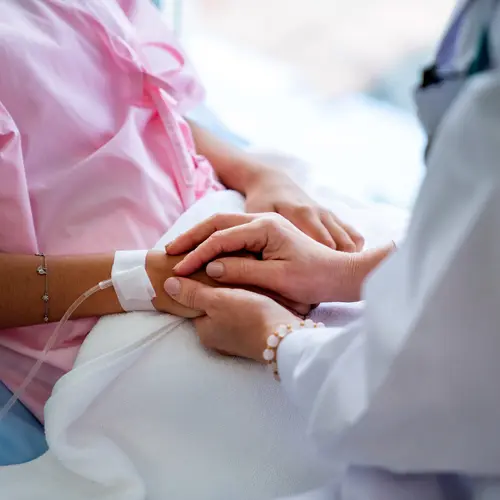If you’re on immunotherapy or you’re about to start, you may wonder if you need to “boost” your immune system. Not necessarily. These new drugs don’t zap your natural defenses the way other treatments can. They rev up your immune response to help your body find and attack more cancer cells.
Still, there are reasons your immune system could be weakened. One is that people tend to take newer immunotherapy drugs after other options failed. Those treatments, including chemotherapy and radiation, are known to lower your immune response.
These five science-backed tips can help keep your immune system as strong as possible during cancer treatment.
1. Sleep Well
Aim for 7 hours of sleep a night. It isn’t bad to get less sometimes, but if you don’t get enough most nights, it could strain your system. That means you’ll be more likely to get sick from colds, the flu, and more serious infections. You also won’t be able to recover from them as well as a healthy person.
If you have a hard time falling and staying asleep, try these steps:
- Go to bed and wake up at the same time every day.
- Don’t go to bed hungry or too full.
- Have a bedtime ritual, like bathing or journaling, every night.
- Keep your bedroom cool, dark, and quiet.
2. Eat Smart
When you’re on immunotherapy, eat a range of healthy foods. Fruits, vegetables, and protein are all important. The goal is to get different nutrients to support your immune system and your body’s other systems. Even if you’re not that hungry during treatment, try to have small amounts of foods you know are good for you.
Eating smart also means knowing what to avoid. Skip supplements that claim “immune support” on the label. They could affect your treatment. They also aren’t likely to boost your health.
You should also skip “cancer cure” diets. These include Livingston-Wheeler therapy, Gerson therapy, and Kelley and Gonzalez treatments. There’s no scientific evidence that they help, and their side effects can be harmful.
3. Get Moving
Exercise is key for a healthy immune system. For many people with cancer, it’s also safe. Talk to your doctor about how much and what kind is best for you.
Keep in mind that there may be times when you shouldn’t exercise. For example, it isn’t a good idea to work out if you have:
- Extreme fatigue
- Low red blood cell count (anemia)
- Poor muscle coordination (ataxia)
- Low white blood cell count
4. Manage Stress
Daily stress is common in cancer, and it isn’t good for you. It floods your body with chemicals that can affect your immune system, your digestive system, and more.
One way to lower it is to make healthy lifestyle choices that are also good for your defenses. Eat good food, get enough sleep, and do some sort of exercise regularly. Other ways to ease stress include:
- Deep breathing
- Massage
- Meditation
- Reading
- Listening to music
- Talking to a mental health professional
5. Stay Away From Illness
You want your immune system focused on fighting cancer, not stomach bugs or colds, so steer clear of crowded places where germs abound. You may want to consider wearing a mask in crowds to protect yourself.
ALso, even your kitchen has surprising risks for a weak immune system. These tips can help protect you from bacteria there:
- Thoroughly wash your hands before and after food prep.
- Set the fridge temperature at or below 40 F.
- Put a dish under thawing meat, fish, or poultry to catch drips.
- Wash fruits and veggies before you peel or cut them.
- Don’t eat raw sprouts.
- Rinse packaged salads and similar items, even those labeled “prewashed."

